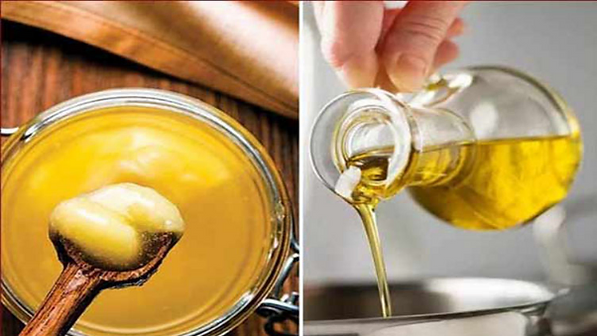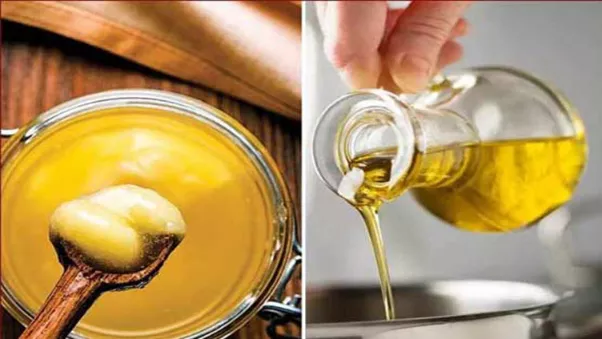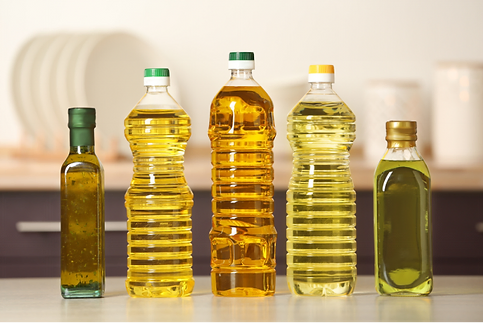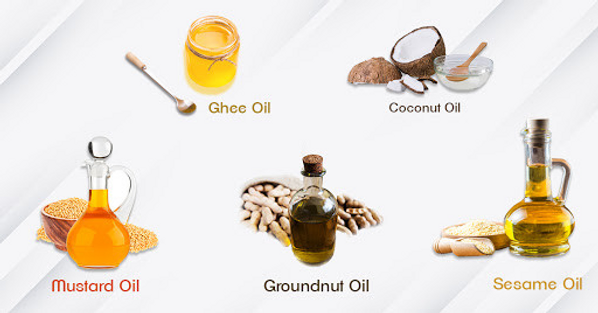Choosing the Right Fats and Oils in Monsoon: Ayurveda Insights

Rekindle your Inner Agni, in the right way this Monsoon!!
We have learnt about superfoods, their facts and myths till now. But the most important, last but not the least, are fats and oils. Let’s know more about this macromolecule.
Now, the monsoon is going on and the people have cravings for oily & spicy food due to the cool climate. In monsoon season particularly our digestive fire is low (Agni Mandya). One should avoid too much oily, deep-fried and spicy food.

In Ayurveda, sneha means a soft, oily or lubricating substance and snehana is the treatment process of oleation of the body and gut, in this procedure ghee or medicated oils are applied to the body. Snehana can be administered both externally (bahya) and internally (abhyantara), with the main types of sneha: oil (taila), clarified butter oil-ghee (ghritha). Snehana is used to detoxify organs and lubricate or soften tissues in the body.
If you are not undergoing such Ayurvedic methods of oleation then you may add suitable fats and oils to your daily diet according to the season and tridoshas.
Nutritional facts of oils and fats:


Oils and fats suitable for sauteing/shallow frying in monsoon:
The Oils & fat which are rich in monounsaturated fats are beneficial for sauteing and shallow frying. (For example olive oil, groundnut oil and unsalted butter.) For deep frying purposes Sunflower oil and ghee are suitable.
Oil recommendations according to Tridoshas:

Vata Body type:
People with this body type are thin, fast-moving, and quick thinkers. They have a dominance of wind and space in their body, which makes them prone to dryness, poor appetite, and irregular digestion. People with this body type should refrain from consuming cold food items and should consume nourishing food containing healthy fats.
Eating food items which are hot in nature can be beneficial for people with vata body type in monsoon as the vata is aggravated in this season. Hence the best-suited cooking oils for this body type are –
- Peanut Oil
- Mustard Oil
- Olive Oil
Pitta Body type:
Pitta body type people have the dominance of fire and water. People with this body type have oily skin, a fragile body and an aggressive personality. These people are prone to heat and have good digestion. People with this body type should consume food items that will keep them cool and hydrated. Along with consuming food items that are cool in nature and have high water content, the food for these people should be cooked in either of the following oils –
- Ghee/ Clarified butter
- Coconut oil
Kapha Body type:
People with Kapha body type are dominated by the elements of water and earth. People with this body type have a solid body(body structure is broad and bulky musculature), calm nature and are transparent in their behaviour. Due to their bulky body type, they are lazy in nature and have slow digestion. People with this dosha should include foods in their diet which would help to enhance their metabolism. The oils to be avoided by these people in monsoon are cold in nature and should include oils that are hot in nature –
- Safflower Oil
- Sesame Oil
- Mustard Oil
- Groundnut Oil
To restore your wellbeing by enhancing your metabolism and reducing the aggravated vata, one must follow Rutucharya. i.e. seasonal recommendations as per your body type.
We recommend such seasonal changes in our food plan. Do visit our websites www.naditarangini.com and www.atreyainnovations.com and know which oils and fats to consume to stay healthy as per your Prakruti & Vikruti changes.
You may also connect with us on +91 90214 14895, Call to know more Today!!
Author-
Vaidya Shillpa Jamdarkhana
Mrs. Archana Patil (Wellness Coaches)
Credits –
Vaidya Tejaswini Bhale – Borse (Ayurveda Physician),
Shruti Kulkarni (Clinical Nutritionist)
For regular updates, like and follow:


